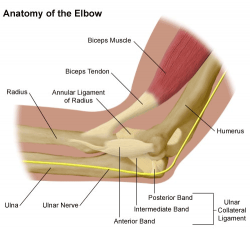I have gotten a flu shot every year for the last 6 years or so to protect myself from getting the flu. Now a study has been released saying that the chance of dying from the flu is not reduced by getting the shot. I for one do not get the shot to save myself from death but instead to just not have that few weeks of possible downtime from getting a bad flu.
Still this is interesting, if people get vaccinated against the flu then why does in not lower fly deaths? Is this because the worst of the strains are not protected against?
The flu shot does help protect against specific strains of influenza but its ability to help prevent deaths among the elderly may have been exaggerated, a new study suggests.
Over the last 20 years in the U.S., vaccination rates among the elderly have increased from 15 to 65 per cent, but hospital admissions and death rates from all causes have not declined proportionately, said Dean Eurich, a clinical epidemiologist and professor at the school of public health at the University of Alberta.
Previous reports of a reduction in mortality rates linked to flu shots were based on observational studies.
“Only about 10 per cent of winter-time deaths in the United States are attributable to influenza, thus to suggest that the vaccine can reduce 50 per cent of deaths from all causes is implausible in our opinion,” Eurich said.
To investigate, Eurich and his colleagues analyzed data from people 65 or older who were hospitalized for pneumonia during the flu and non-flu season. Each vaccinated person was compared to a non-vaccinated person with similar demographics and medical conditions.
Healthy-user effect
After controlling for factors that were not considered or were not available in previous studies reporting a mortality benefit, Eurich’s team concluded the benefit was very small and may be attributed to the healthy-user effect.
The healthy-user effect applies to people who are informed about their health and do everything they can to stay healthy, like watching what they eat, exercising regularly, taking medications as prescribed and getting vaccinated, said Dr. Sumit Majumdar, the study’s principal investigator and a medical professor at the university.
The researchers hypothesized that if the healthy-user effect was responsible then there should be a difference in mortality benefit during the off season.
In the first September issue of the American Journal of Respiratory and Critical Care Medicine, the team reported 12 per cent of patients died in hospital.
After controlling for details such as pneumococcal immunizations, socioeconomic status, as well as sex, smoking, and severity of disease, the mortality benefit seen in previous studies was reduced to a statistically non-significant level of 19 per cent, the researchers said.










This article is a slight misrepresentation of their findings. Eurich et al. found that most of an apparent 50% decrease in mortality between vaccinated and non-vaccinated elderly patients admitted *outside of flu season* for pneumonia disappeared when the patients were matched according to various criteria (medications, age, etc.) and grouped as individuals into pairs. They went on to suggest that a “healthy-user” effect (the patients least likely to die, i.e., those most concerned about their health, those who best follow recommendations, etc. are also those most slightly to get flu shots) explains the decreased mortality amongst the vaccinated, and that this effect might also impact estimates of mortality reduction *during flu season* from the flu vaccine. (Note: they did not themselves follow patients through the flu season.) I note that at least one subsequent study that adopted the methodological safe guards suggested by Eurich et al. *confirmed* that flu shots do reduce mortality, even after confounding factors are removed. (See here: http://www.ncbi.nlm.nih.gov/pubmed/19213779)
Your title: “Flu shot does not lower Flu deaths,” is somewhat misleading (both in general and in regard to the study of Eurlich et al.). Given the serious health consequences for certain demographics of choosing not to vaccinate, and given the hysteria and misinformation surrounding vaccination risk and benefits on the Internet, you might wish to choose your wording more carefully in the future.
Cheers!
Jason